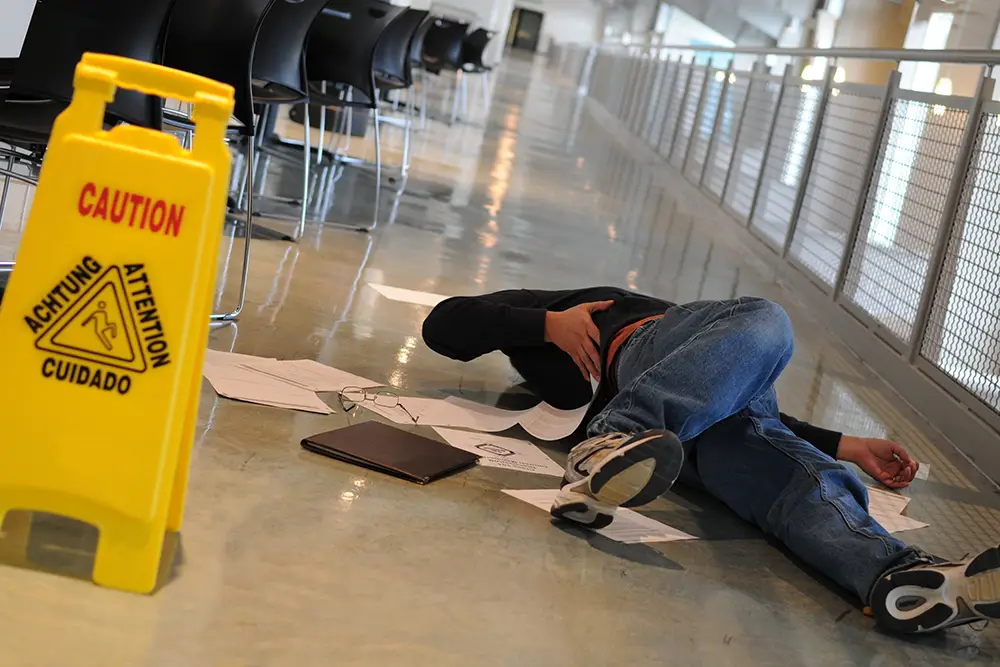3 min read
Who is Held Responsible in a Personal Injury Case?
![]() Whitcomb, Selinsky, PC Staff
:
November 15, 2023
Whitcomb, Selinsky, PC Staff
:
November 15, 2023

Personal injury claims can be complicated, and the determination of who is held responsible in a personal injury case depends on the specifics of each case.
To be a personal injury case, the actions or negligence of another person or entity has to harm someone. It can be harm or injury to the body, mind, or emotions, or harm to reputation or finances.
Whoever caused the harm or injury is legally liable if and when you prove it and get a ruling in your favor.
Legal Liability in Personal Injury Cases
Liability is determined based on the legal concept of negligence, strict liability, and/or breach of warranty.
Negligence is the failure to take reasonable care to prevent harm to others. If someone's negligence caused an injury, they may be liable for the damages.
Four elements must be present to establish negligence:
- Duty: The legal obligation to exercise reasonable care to prevent harm to others.
- Breach: A failure to fulfill this duty.
- Causation: The link between the breach of duty and the injury sustained.
- Damages: The actual harm suffered by the victim due to the breach of duty.
Strict Liability means someone is responsible for the harm or injury even if they did not intend to cause it or do anything wrong. Common examples include cases involving dog bites, dangerous or defective products, or ultra-hazardous activities.
Breach of Warranty occurs when a product purchased is not what the seller, manufacturer, retailer, or other person responsible for distributing that product promised it to be, and someone is harmed or injured because of that disparity.
Different states may have different standards and legal definitions for liability related to personal injury, so be sure to consult with a personal injury attorney in your state.
Determining Who is Responsible for a Personal Injury
Determining who is responsible for a personal injury depends on the case's circumstances. In some cases, one party may be solely accountable; in others, multiple parties may share legal liability.
Parties who may be held responsible in a personal injury case include:
Individuals: If an individual's negligence caused an injury, they may be held accountable. For example, if a driver is texting and driving and causes a car accident, they may be liable for any injuries.
Employers: Employers may be responsible for the actions of their employees if they acted within the scope of their employment at the time of the injury. For example, if a delivery driver causes an accident while making a delivery, their employer may be liable.
Manufacturers: If a product is defective and causes an injury, the manufacturer may be held responsible. For example, if a child's toy contains small parts that can be swallowed and a child chokes, the manufacturer may be liable for any resulting injuries.
Property owners: Property owners may be held responsible for injuries that occur on their property if a dangerous condition that the property owner knew or should have known about caused the injury. For example, if a spill in a grocery store is not cleaned up and a customer slips and falls, the store may be liable for any injuries.
Government entities: Government entities may be held responsible for injuries caused by government employees' negligence or injuries that occur on government property. For example, if a pothole on a city street caused a person’s injury, the city may be liable for any resulting injuries.
Responsibility for Paying Compensation When it is Awarded
When compensation is awarded in a personal injury case, the party responsible for the injury is typically accountable for paying the damages.
The “responsible party” may include the individual who caused the injury, their insurance company, or their employer or property owner if the injury occurred within the scope of their employment or on their property.
If multiple parties share liability for the injury, each party may be responsible for paying a portion of the damages awarded. For example, suppose a truck driver causes an accident while working for a shipping company. In that case, the driver and the company may be responsible for paying damages to the injured party.
If the responsible party cannot pay the damages awarded, they may be forced to file for bankruptcy or have their wages garnished to satisfy the judgment. In some cases, insurance coverage may be available to cover the damages awarded, depending on the specific policy terms and coverage limits.
It is crucial to work with an experienced personal injury attorney to determine who is responsible for paying damages in your case and to ensure that you receive the full compensation you are entitled to for your injuries.
Getting Legal Advice and Help for a Personal Injury Case
Determining who is held responsible in a personal injury case can be complex and requires a thorough analysis of the case's circumstances.
That is why consulting with an experienced personal injury attorney who can help navigate the legal process and ensure you receive the compensation you deserve for your injuries is essential.
We invite you to get a free consultation with the Personal Injury Legal Team at Whitcomb Selinsky, PC. Call (866) 433-4116 or click here to use our convenient online form to tell us how we can help.


